Home page
We are beginning to understand much more about how the surrounding environment and our interaction with it can influence the reproductive capability of an individual.
We are also beginning to understand how numerous factors (dietary and environmental) can impact maternal and paternal contributions to an embryo, as well as the subsequent growth and health of the offspring. These are coupled with a growing reliance on assisted reproductive technologies (ART) in order to reproduce.
Our lab investigates the fascinating interactions between all these components. In particular, our research focuses on:
- Improving outcomes of human and animal ART
- Identifying critical pathways in early embryo development and metabolism, and
- Determining the effects of endocrine and environmental factors on fertility and offspring health.
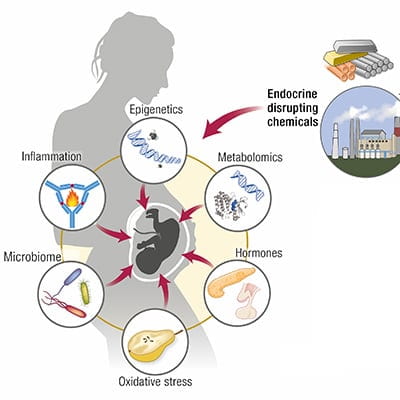 We undertake our research in a variety of species, including humans, ruminants, rodents and invertebrates using strategies such as in vivo animal studies, in vitro embryo culture, as well as a range of biochemical, molecular and genomic methodologies.
We undertake our research in a variety of species, including humans, ruminants, rodents and invertebrates using strategies such as in vivo animal studies, in vitro embryo culture, as well as a range of biochemical, molecular and genomic methodologies.
- Research
See our current research programs, and the patents the Green Lab holds.
Find out more - Distinctions and awards
See the distinctions and awards that the team has won.
Learn more - Research funding
See the grants and foundations which have contributed to the Green Lab's work.
Find out more
The Green Laboratory is a member of the Society for Reproductive Biology (SRB)
Current research projects
Establishment and validation of the exposome as a prognostic predictor of female fertility
Determining the exposome of female fertility patients, and if it is useful predictor of fertility outcomes. Collaborators: Dr. Brad Clarke, Prof. Luk Rombauts, Dr. Debra GookUtilising male fertility as a biomarker of health to understand the biological effects of PFAS
Understanding how PFAS exposure effects male fertility, and whether male fertility is a biomarker of PFAS exposure. Collaborators: Prof. Brett Nixon, Dr. Geoff De Iuliis, Dr. Shaun Roman (The University of Newcastle)The impact of environmental toxicants on the fertility of female animals
Determining the effects of environmental toxicants on female fertility across generations in mouse and marsupial models. Collaborators: Dr. Karla Hutt (Monash University), Dr. Jodi Flaws (University of Illinois), Dr. Oliver Hutt (CSIRO).Environmental pollutants and embryo development
Determining the effects of endocrine disruptors on embryo developmental competence and metabolism. Collaborators: Prof Andrew Pask (School of BioSciences), Dr Alex Harvey (School of BioSciences.Sperm microfluidics
Development of microfluidic devices to improve sperm quality of males undergoing fertility treatment, which should increase fertilisation and pregnancy rates. Collaborators: Dr Bryon Wright (University of Auckland, New Zealand), A/Prof Richard Fry (University of Melbourne)Mitochondrial function and ovarian aging
Understanding the impact of maternal age and ovarian stimulation regimens on changes in the mitochondrial characteristics that modulate oocyte and embryo development. Collaborators: Dr Lynsey Cree, A/Prof. Andrew Shelling (University of Auckland, New Zealand)Antioxidants and reproduction
Does melatonin, as a powerful antioxidant, protect against the potentially detrimental impact of urban lighting on health and species ‘fitness’. Collaborators: A/Prof Theresa Jones (School of BioSciences), Metabolomics AustraliaIVF children phenotype
Follow-up studies of children born through IVF to determine if differences are evident in their body composition, blood metabolites and hormones when compared to naturally conceived children. Collaborators: Prof. Wayne Cutfield (University of Auckland, New Zealand), Dr John Peek (Fertility Associates Ltd., New Zealand)The health of cloned animals
Investigations to determine the health of cloned cattle from early pregnancy through to old age. Collaborators: Dr Rita Lee, Dr Dave Wells (AgResearch Ltd., New Zealand)Uterine infection and reproductive potential
Studies to establish the long-term effects of uterine infection after parturition on subsequent ovarian function. Collaborators: Dr Penny Back (Massey University, New Zealand), Prof Ken McNatty (Victoria University, New Zealand)Patents
Green MP, Wright BE (2013) Method and apparatus for the isolation of motile sperm. Filed in the New Zealand (PCT NZ2013/000026, Feb 2013) and Australia (2013226583), USA (14/382046) and EU (W02013129947) Sept 2014. This patent is held by BWMG Ltd and is under an exclusivity agreement with an option to license to Genea Biomedx, Pty. Green MP, Berg D, Lee RSF, Berg MC (2010) Livestock parturition to conception interval reduction strategy. NZ Patent office (PCT/NZ2011/000636), filed June 2011. Held by AgResearch Ltd and is under an exclusivity agreement to MSD (Merck Sharpe Dohme) Animal Health, NZ.A/Prof Green’s awards
2020
Inducted as a Fellow of the Society for Reproductive Biology
2019
Society for Reproductive Biology Reproduction, Fertility and Development best publication of the year award
Cook LE, Finger BJ, Green MP, Pask AJ. Exposure to atrazine during puberty reduces sperm viability, increases weight gain and alters the expression of key metabolic genes in the liver of male mice. Reprod Fertil Dev. 2019;31(5):920‐931. doi:10.1071/RD18505
2018
Inaugural SSR-SRB Presidents’ Award for Outstanding Mid-Career Researcher
2017
Robinson Research Institute Award for Excellence in Reproductive Biology Research, Society for Reproductive Biology (SRB)
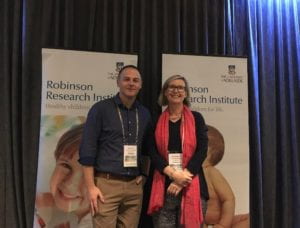
2015
Faculty of Science Dean’s Award for Excellence in Teaching
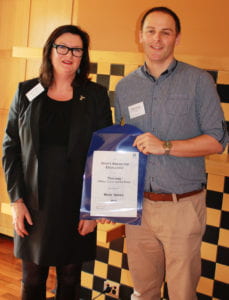
2014
Faculty of Science Nominee Dean’s Award for Excellence in Teaching
Staff and student awards
2020
Georgina Prewer (Hons), Shweta Ilango (Hons) and Drew Szabo (PhD) were each awarded the Norma Hilda Schuster scholarship for their academic achievements (AUD$5,000).
2019
Bethany Finger received the 2019 Science and Innovation Award for Young People in Agriculture, Fisheries and Forestry (Dairy Industry) to conduct research to improve JIVET in cattle (AUD$21,912).
2017
Alexander Scott received the Norma Hilda Schuster scholarship for his academic achievement (AUD$1,000).
2016
Joanna Durrant received an EquityTrustees Foundation – Holsworth Wildlife Research Endowment towards her PhD research project (AUD$6,500).
2015
Joanna Durrant received the Robert Johanson & Anne Swann Fund towards her PhD studies concerning the Australian environment (AUD$2,613).
Joanna Durrant received an ANZ Trustees Foundation – Holsworth Wildlife Research Endowment towards her PhD research project (AUD$6,000).
2014
Bom Choi and Bethany Finger were awarded the Norma Hilda Schuster scholarship for their academic achievements (AUD$2,000).
2013
Bethany Finger was awarded the Norma Hilda Schuster scholarship and the Muriel Ramm Bursary based on her academic achievements (AUD$7,000).
2012
Joanna Durrant received an ANZ Trustees Foundation – Holsworth Wildlife Research Endowment towards her MSc research project (AUD$1,000).
Elizabeth Hammond was awarded best Honours research presentation in the Faculty of Medicine and Health Sciences, University of Auckland.
2009
Hassendrini Peiris represented the University at the National New Zealand Post-Graduate Conference in Wellington, where she was highly commended for her presentation.
Hassendrini Peiris was awarded first place at the Exposure post graduate competition at the University of Auckland.
2007
Alice Coveny was awarded a Lottery Health Research Grant (NZ$35,835) to undertake proteomic analysis of samples collected during her PhD studies.
2006
Alice Coveny was awarded a prize for best trainee research publication by the National Research Centre for Growth and Development (NRCGD).
2005
Alice Coveny received a Bright Futures Top Achiever Doctoral Scholarship to undertake her PhD.
Student travel and professional development awards
2017
Society for Reproductive Biology travel grant to World Congress of Reproductive Biology ($2,000)
2008
Hassendrini Peiris, Society of Reproductive Biology Conference Travel Award (AUD$900)
Research funding
2020 Rabbit-Free Australia Foundation
‘Developing gene driven technology for the eradication of rabbits’
2019-2021 ARC Discovery grant
‘The impact of environmental toxicants on the fertility of female animals’
2019-2022 NHMRC Targeted Call for PFAS
‘Utilising male fertility as a biomarker of health to understand the biological effects of PFAS’
2019 Monash IVF Group Research and Education Foundation
‘Establishment and validation of the exposome as a prognostic predictor of female fertility’
2019 BioSciences Seed Funding, University of Melbourne
‘Establishment and validation of the exposome as a prognostic predictor of female fertility’
2019-2021 Learning and Teaching Initiatives Grant, University of Melbourne
‘Assessment of, and for, learning: engaging students and staff to build better MCQs’
2019 Memphasys Ltd
‘Bovine embryo cultures using a novel sperm separation device’
2019 Science and Innovation Award, Australian Government
‘Improving JIVET (juvenile in vitro embryo production and transfer) outcomes in cattle’, BJ Finger (CIA)
2018 ART Lab Solution Pty, Australia
‘In vitro bovine embryo production systems’
2017 National Health and Medical Research Council (NH&MRC) equipment grant
‘Label printer and tissue homogenizer’
2016 Genea Biomedx Pty, Australia
‘Project Para- validation of sperm microfluidic designs’
2014-2017 National Health and Medical Research Council (NH&MRC) Development grant
‘Development of a novel microfluidic device to treat male infertility’.
2014-2016 Hermon Slade Foundation
‘The dark side of light: species and community level impact of artificial night lighting’.
2014-2017 Merck Serono Lectureship, Merck Serono Australia
2012-2014 Early Career Grant, University of Melbourne
‘Effects of endocrine disruptors on embryo developmental competence and metabolism’.
2012-2013 Research Collaboration Grant, University of Melbourne
‘Sorting of sperm by microfluidics: improved reproductive outcomes’.
2012-2013 Nuture Foundation, New Zealand
‘Use of next generation sequencing technology to determine the effect of ovarian ageing and stimulation regimens on the mitochondrial genome’.
2012-2013 Fertility Society of Australia (FSA)
‘The use of next generation sequencing technology to study the effect of ovarian ageing and stimulation regimens on the mitochondrial genome’.
2011-2013 UniServices Ltd, University of Auckland
‘Microfluidic sperm sorting for assisted reproductive technologies’.
2011-2012 Pearce Trust, The Liggins Institute
‘Strategies for improving reproductive technologies’.
2010-2012 MoRST Emerging Leaders Fund
‘Enhancing the efficiency of New Zealand dairy farming’.
2010-2011 Kelliher Trust Research Award
‘The role of the endometrial epithelial cells in embryo implantation’
2008-2012 Fertility Associates Research Fellowship
‘Improving the efficiency of human IVF: oocyte and embryo markers’.
2008-2013 Foundation for Research, Science and Technology (FRST)
‘Improving cow fertility by novel nutritional strategies and epigenetic selection’.
2008-2009 Faculty Research Development Fund
‘The role of placental myostatin in the maternal – fetal metabolic dialogue’.
2007-2008 Maurice and Phyllis Paykel Trust
‘Impact of a high fat diet: Programming long term changes in reproductive fitness’.
2006-2007 National Research Centre for Growth and Development (NRCGD) Pilot Grant
‘Fetal programming and Forkhead transcription factors (Foxs)’
2006-2008 National Research Centre for Growth and Development (NRCGD) Pilot Grant
‘Determination of the health and physiological responses of genetically identical cloned calves in comparison with age matched normal controls’.
Recent news
-
Dr Green commissioned to write an article for Australian Doctor
Dr Green was commissioned to write the article ‘A GP guide to endocrine-disrupting chemicals in fertility’ for Australian Doctor under the Therapy Update, available at https://www.ausdoc.com.au/therapy-update/gp-guide-endocrinedisrupting-chemicals-fertility. This is the number one medical publication in Australia with over 22,000 medical professional subscribers and more than 150,000 visits a month.
23 September, 2019 News -
Dr Green interviewed by the Herald Sun
Dr Green's expert opinion and comments were used in an article entitled ‘Mums into the green scene’ in the Herald Sun newspaper, 22nd September.
22 September, 2019 News -
Dr Green contributes to Kidspot article on the ‘The everyday activities that are harming our fertility’
Dr Green was interviewed for an article published on Kidspot, entitled ‘The everyday activities that are harming our fertility’. It is available online at https://www.kidspot.com.au/birth/conception/fertility/the-everyday-activities-that-are-harming-our-fertility/news-story/f9e56d9fa419375cb4e79660ddcc77c3.
7 August, 2019 News -
Science Festival Week sees Dr Green interviewed by ABC Radio
Dr Green was interviewed by ABC Radio Melbourne, Ballarat and Drive-time on the ‘Future of Plastic’ and its effects on our health, as part of the Science Festival Week promotion for the Faculty of Science public event, 12-13th August.
2 August, 2019 News -
Dr Green in The Conversation and ABC News
Dr Green has authored a commentary article for The Conversation entitled ‘You need more than just testes to make a penis’, highlighting a new publication in the field. It is available at http://theconversation.com/you-need-more-than-just-testes-to-make-a-penis-111625 and on the ABC news site at https://www.abc.net.au/news/2019-02-15/disorders-of-penis-developement-are-on-the-rise/10812360. This article had over 250,000 reads in 48 hours.
15 February, 2019 News -
Paper on the effects of atrazine on male health and fertility sees national media coverage
Dr Green's paper on the effects of atrazine on male health and fertility has received national media coverage, with articles in the Age and Sydney Morning Herald, as well as articles in the University of Melbourne Pursuit and Medical Express.
18 January, 2019 -
Dr Green interviewed by SMH about the accuracy of fertility testing
Dr Green contributed to an article in The Age and Sydney Morning Herald titled ‘Experts concerned fertility testing is an expensive con’. It is available online at https://www.smh.com.au/lifestyle/life-and-relationships/experts-concerned-fertility-testing-is-an-expensive-con-20181228-p50ojz.html.
6 January, 2019
News from 2018
ABC radio interview on fertility and consuming acrylamide and mercury in food, their effects on the reproductive health and of offspring, 13th October 2018.
Article for Channel9Coach https://coach.nine.com.au/2018/08/28/11/42/household-chemicals-fertility on ‘How chemicals in everyday products could be affecting your fertility’, 28th August 2018.
Article for Channel9Coach https://coach.nine.com.au/2018/08/20/08/40/chemicals-and-children-20-08?mc_cid=2210e95601&mc_eid=6b1424f66f on ‘Should you be worried about your kids’ exposure to plastic?’, 20th August 2018.
National media coverage with articles in The Age https://www.theage.com.au/national/these-scientists-think-plastics-are-shrinking-penises-20180725-p4ztg0.html , The Sydney Morning Herald https://www.smh.com.au/national/these-scientists-think-plastics-are-shrinking-penises-20180725-p4ztg0.html and Mens Health Australia https://www.menshealth.com.au/study-links-plastic-to-smaller-genitals?category=News on the effects of EDCs on penis development and the incidence of hypospadias, 25th July 2018. SBS News Parody of this article https://www.sbs.com.au/news/how-plastic-is-shrinking-your-penis (22,000 Views on Facebook, SBS 3,516 views in 2 weeks). Followed by international media coverage in The Sun, UK https://www.thesun.co.uk/news/6871840/plastic-chemicals-food-packaging-make-penis-smaller/ and the NYPost https://nypost.com/2018/07/26/study-warns-plastics-could-be-shrinking-penises/ 31st July 2018.
ABC radio interview on fertility and consuming a high sugar diet, as well as the effects of taking paracetamol on the reproductive health of male and female offspring, 28th April 2018.
Sort for my opinion and quoted in a Herald Sun article ‘IVF treatment in Victoria to be reviewed by state government’, 6th April 2018.
ABC radio- interview on fertility and lifestyle factors that affect the chances of conceiving 27th January 2018.
News from 2017
Fertility Week National media campaign, in conjunction with www.yourfertility.org.au and Victorian Assisted Reproductive Technology Authority (VARTA) – production of three videos, social media campaign and fact sheets on the effects of endocrine disruptors on fertility.
Follow up media coverage includes: articles in the Herald Sun, The Age, ABC News, the Daily Mail, Daily Telegraph, The Better Health Channel Blog, MUSSE and Pursuit; Radio Interviews (e.g. ABC Radio (twice in October 2016)
Various media outlets cover the recent paper published in Scientific Reports on how BPA impacts bovine embryo development. http://www.theage.com.au/technology/sci-tech/fears-for-embryos-exposed-to-food-container-chemical-20160714-gq5qnb.html
News from 2015
ABC Catalyst- An interview and provided research papers and resources for a special edition program on endocrine disruptors entitled ‘Our chemical lives’ shown Tuesday 31st March 2015. http://www.abc.net.au/catalyst/stories/4207313.htm
News from 2014
Asked for scientific comment by ‘The Scientist’ USA on a recent paper published in Endocrinology on IVF offspring in November.
Herald Sun article on obesity undertaken by my MSc student Bethany Finger (2nd June 2014) http://www.heraldsun.com.au/news/victoria/childrens-health-suffers-if-both-parents-are-obese/story-fni0fit3-1226939170648
News from 2013
Article in ABC Health & Wellbeing ‘Dads’ biological clocks tick too’ 17th October http://www.abc.net.au/health/features/stories/2013/10/17/3871140.htm
Up Close University of Melbourne Podcast entitled Pregnancy 2.0: The lingering effects of modern reproductive technologies. http://upclose.unimelb.edu.au/episode/255-pregnancy-20-lingering-effects-modern-reproductive-technologies?play=1
Article in the Fertility Society of Australia (FSA) quarterly publication on my research on the importance of mitochondria function in determining the developmental potential of oocytes and thus embryos. The readership encompasses clinician fertility specialists, researchers and embryologists in Australia and New Zealand.
News from 2012
Interview with Radio NZ on the limitations and issues of research funding and the future of science in New Zealand.
News from 2010
International media coverage generated from my presentation at the FSA annual meeting on how IVF derived children differ from naturally conceived controls. Media coverage included in excess of 50 articles in eight countries (including NZ and Australia), as well as TV reports in Australia and a radio interview in NZ.
News from 2009
NZ Dairy Exporter article (September issue) based on my NZSAP conference paper
News from 2008
International media coverage generated from my publication on skewing sex ratio. Articles in New Scientist, USAtoday, Yorkshire Post UK and Columbia Tribune USA. It is one of the most highly accessed papers in the journal with over 700 hits.
Our research that shows a maternal high fat diet leads to early onset of puberty presented at the Endocrinology Society Annual Meeting, San Francisco, USA generated media coverage with an article in NZ Herald, US newspapers and other media forums.
Academic staff
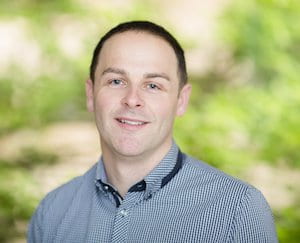 Associate Professor Mark Green
Associate Professor Mark Green
A/Prof Green’s research focuses on understanding how environmental factors, such as endocrine disruptors (PFAS and atrazine), light pollution and heat stress, as well as assisted reproductive technologies (ART) affect fertility.
Graduate students
Professional staff
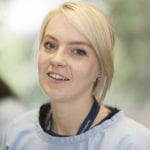 Bethany Finger works as a research assistant in the Green Laboratory, managing the day to day of the lab and completing research. |
Visiting scientists
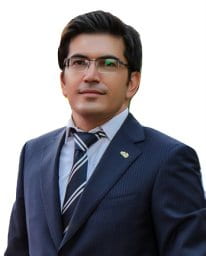 Associate Professor Reza Masoumi Division of Physiology, Department of Animal Science Faculty of Agriculture, University of Zanjan (November 2019–February 2020) |
Previous lab members
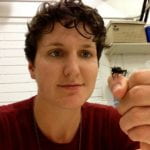 Joanna Durrant completed her Master of Philosophy in 2017, investigating the impacts of ecological light pollution. She now works as a Park Ranger.
Joanna Durrant completed her Master of Philosophy in 2017, investigating the impacts of ecological light pollution. She now works as a Park Ranger.
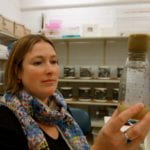 Lucy McLay completed her PhD in 2017, studying the biological effects of artificial light at night.
Lucy McLay completed her PhD in 2017, studying the biological effects of artificial light at night.
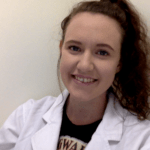 Alesia Harper studied her Honours degree in 2017, researching the impacts of atrazine exposure in drinking water on male fertility. She now works as a Research Assistant.
Alesia Harper studied her Honours degree in 2017, researching the impacts of atrazine exposure in drinking water on male fertility. She now works as a Research Assistant.

Alexander Scott completed his Master of Science in 2017, studying the impacts of atrazine exposure on bovine sperm and the resulting embryos.
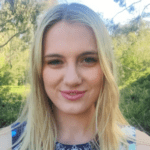
Ashleigh Henderson completed her Master of Science in 2016, researching the impacts of atrazine on bovine embryo development. She now works as a Medical Scientist working in stem cell therapy and immunotherapy at the Royal Brisbane & Women’s Hospital.
Luke Govers completed his PhD in the Pask lab in 2019, co-supervised by Mark. His research focused upon the role of oestrogen, testosterone and oestrogen mimicking endocrine disrupting chemicals on the process of urethra closure in males.
Laura Cook completed her Master of Science in the Pask Lab in 2016, studying the impacts of atrazine on male fertility. She is now completing her PhD in the Pask Lab.
Kathy Choi completed her Master of Science in 2014, researching how BPA impacts pre-implantaton bovine embryo development. She went on to complete a graduate law degree.
Kelly O’Sullivan worked as a research assistant in the lab during 2012 and 2013, and was critical to establishing the lab at the University of Melbourne. She now works as a research assistant at Monash University.
Collaborators
Australia
- Ms Kayleen Bell (Talking PFAS Podcast)
- Dr Kiri Beilby
- Dr Bradley Clarke
- Dr Geoff De Iuliis
- Dr Fabien Delerue
- Prof Frank Dunshea
- Dr Stephen Frankenberg
- Dr Andrew French
- A/Prof Richard Fry
- Prof Brett Nixon
- Dr Geoff De Iuliis
- Prof David Gardner
- Dr Alexandra Harvey
- A/Prof Karla Hutt
- Dr Martina Kocan
- A/Prof Theresa Jones
- Prof Raoul Mulder
- Prof Andrew Pask
- A/Prof Suzie Reichman
- Prof Rebecca Robker
- Prof Jeremy Thompson
- Dr Kelly Walton
New Zealand
- Dr Lynsey Cree and A/Prof Andrew Shelling (University of Auckland)
- Dr Rita Lee and Dr Dave Wells (AgResearch Ltd.)
- Dr Bryon Wright (Auckland UniServices)
Industry engagements and collaborations
- Human fertility clinics – Fertility Associates, Repromed, Monash IVF
- Bovine embryo culture media company- ART Solutions
- Biological separations company- Memphasys
- Micro-nano-bio company – MiniFAB, Auckland Microfab
- Cattle breeding company- Speedbreed
- Crown Research Institute – AgResearch Ltd New Zealand
 Dr Mark Green
Dr Mark Green
Location: Room 354, BioSciences 4 (Building 147), Royal Parade, Melbourne, VIC 3010
Tel: +61 3 8344 4346
E-mail: mark.green@unimelb.edu.au
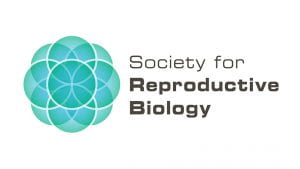
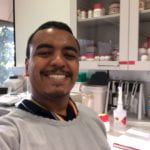

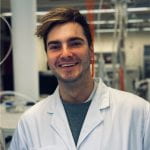 Jaye Marchiandi is completing his PhD in the School of Chemistry within the Faculty of Science. His project aims to characterise and quantify the exposome, i.e., the totality of environmental (non-genetic) exposures from conception onward, in relation to human fertility. Utilising both targeted and untargeted analytical techniques, this project will investigate how exposure to mixtures of emerging contaminants, including per-and polyfluoroalkyl substances (PFASs), phthalates, parabens, and bisphenols, impact human fertility in Australian populations. Jaye is also an active member of the Society of Environmental Toxicology and Chemistry (SETAC).
Jaye Marchiandi is completing his PhD in the School of Chemistry within the Faculty of Science. His project aims to characterise and quantify the exposome, i.e., the totality of environmental (non-genetic) exposures from conception onward, in relation to human fertility. Utilising both targeted and untargeted analytical techniques, this project will investigate how exposure to mixtures of emerging contaminants, including per-and polyfluoroalkyl substances (PFASs), phthalates, parabens, and bisphenols, impact human fertility in Australian populations. Jaye is also an active member of the Society of Environmental Toxicology and Chemistry (SETAC).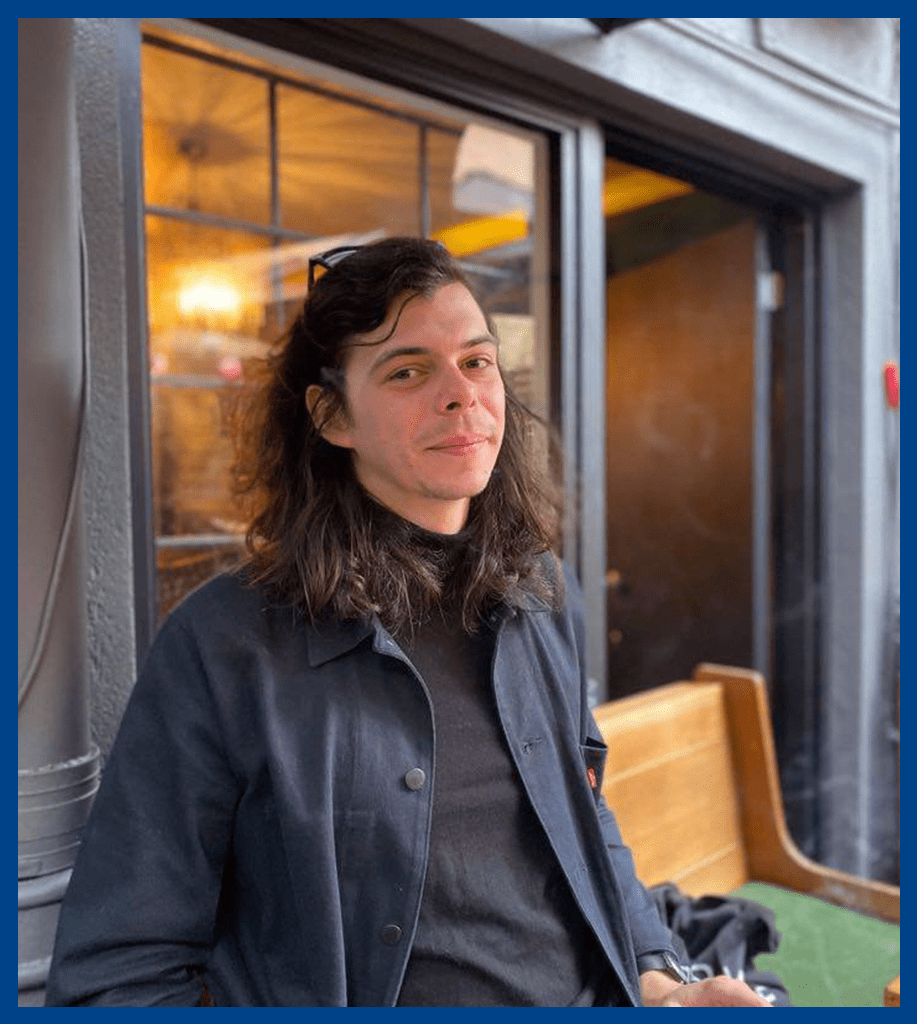 Drew Szabo is studying his PhD in School of Chemistry within the Faculty of Science. He is researching the occurrence, impact and risk of PFASs to Australian birds using targeted and untargeted mass spectrometry. Drew is currently the Vice-Chair of the Society of Environmental Toxicology and Chemistry (SETAC) Asia Pacific Student Advisory Committee (APSAC) and the Chair of the Australian Laboratory for Emerging Contaminants Student Forum Committee.
Drew Szabo is studying his PhD in School of Chemistry within the Faculty of Science. He is researching the occurrence, impact and risk of PFASs to Australian birds using targeted and untargeted mass spectrometry. Drew is currently the Vice-Chair of the Society of Environmental Toxicology and Chemistry (SETAC) Asia Pacific Student Advisory Committee (APSAC) and the Chair of the Australian Laboratory for Emerging Contaminants Student Forum Committee.